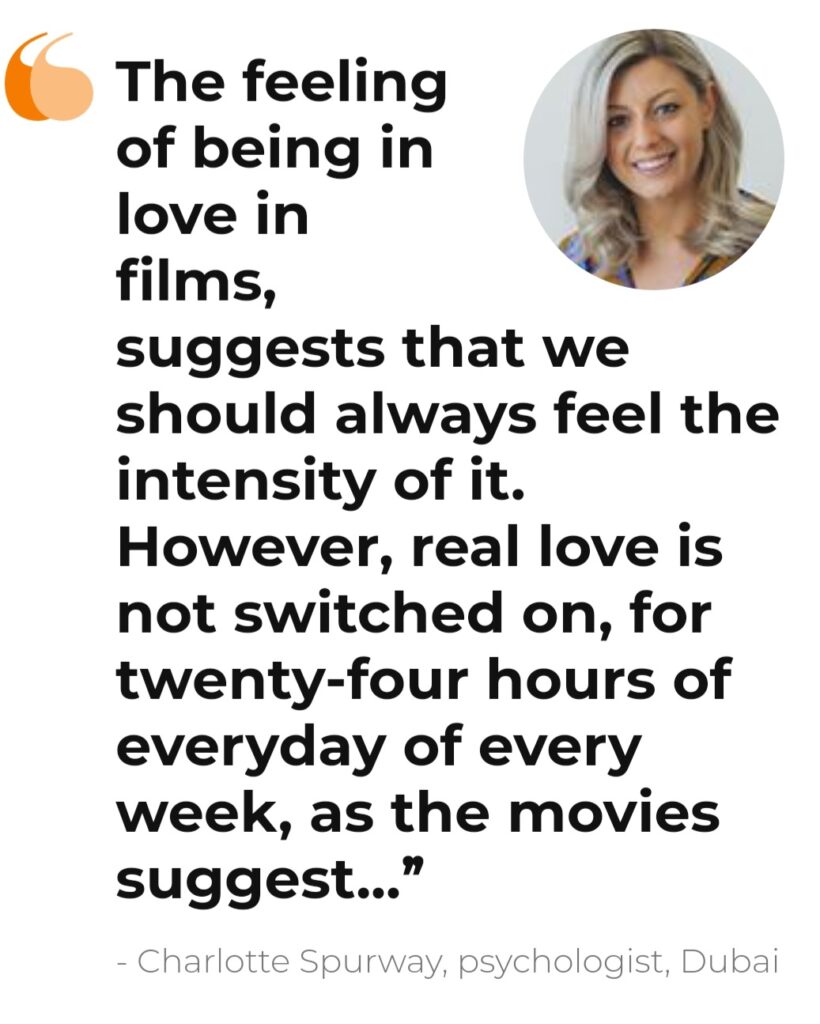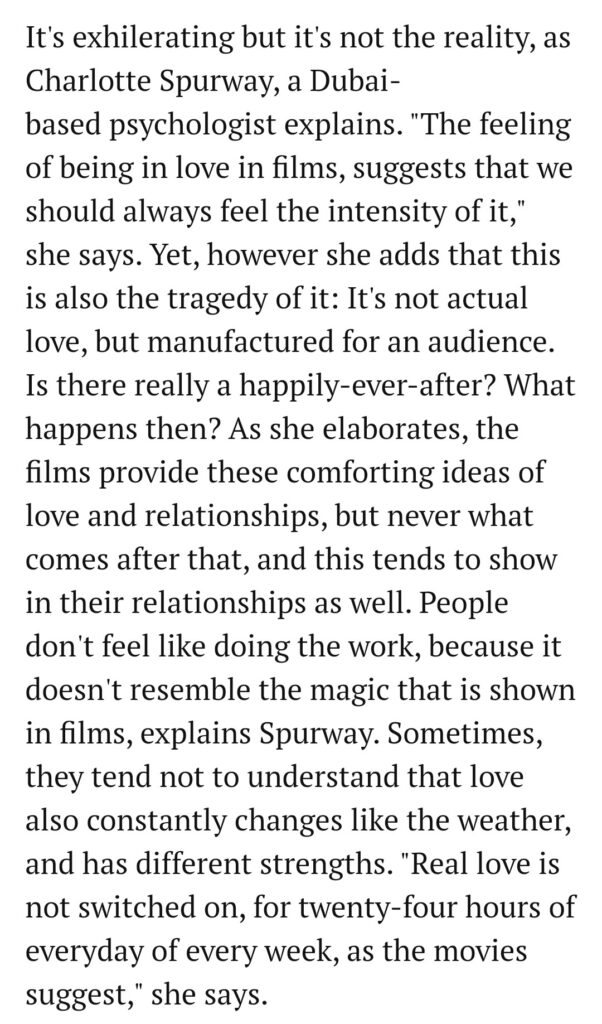Feel like your constantly failing at dating, meeting multiple peter pans or have come across the terms avoidant or anxious attachment in your research?
Or perhaps your questioning whether you should stay or go in your current relationship because its not how you ‘perceive’ love to feel like?
Recently I was interviewed by a reporter from Gulf News about why so many of us crave relationships that exhibit love, fireworks and chemistry that we see repeatedly in the movies.
My answer was simple. It doesn’t exist. Here’s why…
Movies often only ever present the ‘lust’ stage, the ‘ideal’ stage or the ‘honeymoon’ stage of relationships. They show the part where oxytocin, serotonin and dopamine levels are high. The height of the natural releasing ‘love drugs’ in our system. They feel great!
But often what is not seen in the movies is the natural come down that high when our hormones regulate and come back down to baseline. This is the part where the movie often ends.
Love in the movies is like a fairy-tale. As we know from childhood growing up, fair tales are just that. Stories or imaginary fantasy lands with princess and princes. It narrates an idealised version of love stories, the same as in films.
More importantly ‘love’ in reality is not switched on 24hours of every day, 7 days a week, every week of the year.
Healthy love is more like the weather.
Constantly changing state. It has ebbs and flows. We get so fixated on trying to find ‘the one’, or ‘the perfect partner’ or the that fantasy spark or explosive connection that we forget we have been lead to believe through childhood stories and movies that this is love.
As a psychologist, it is far from that, in fact I would unpopularly argue that this is insecure attachment bounding at play and most probably involving trauma bonds or ‘the quicker the fire, the quicker the burn out’ analogy as the relationship-process is often rushed through love bombing tactics and doesn’t build true sustainable healthy connection for life partnerships.


So to summarise:
The feeling of being ‘in love’ in films suggests that we should ‘always’ be feeling the intensity of it. But that is fantasy, and not what real love is.
Love is not a constant, it is a misconception that love should always be ‘switched on’ in a relationship or when dating.
But love is like the weather, it is constantly changing. It is like the ocean, it comes in waves of different strengths, crashes into us and then dissipates and retreats like a tide.
Real love is present in moments, sometimes the smallest moments, a glimpse of a smile or held eye contact.
Real love is not ‘switched on’ 24hours of everyday, of every week as the movies suggest. Love produces oxytocin, serotonin and dopamine, love is therefore a drug and we crave the hit.
This is why lust tends to be more powerful than love and the only part of the story told in movies – We never get to see the aftermath of the honeymoon stage without the love-drug-hits!”
Read the full Gulf News Article
Whether you want to use the term psychologist, psychotherapist or coach, whichever makes you feel more comfortable in helping to tackle the relationship with yourself and others I am an online relationship therapist which can help you understand behaviours which may be effecting your marriage, relationship or dating habits. Whether you need a couples therapist for couples therapy, navigating marital issues, affairs or divorce. I’m here.
Get in touch and book your 20minute discovery call.
Best wishes,
Charlie.
Psychologist, Therapist, Coach based in Dubai providing global online therapy to those in need.
We don’t need to hurt.
#relationship expert




